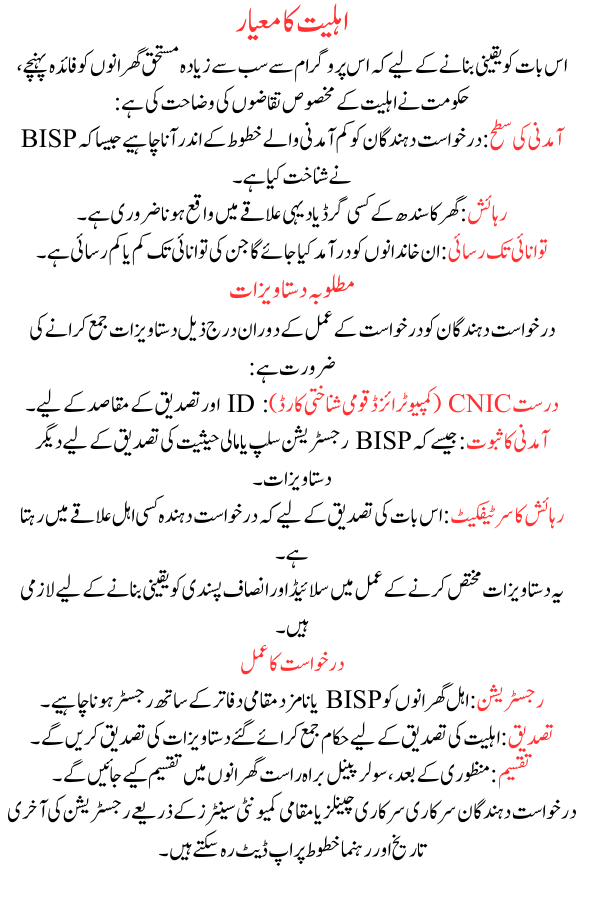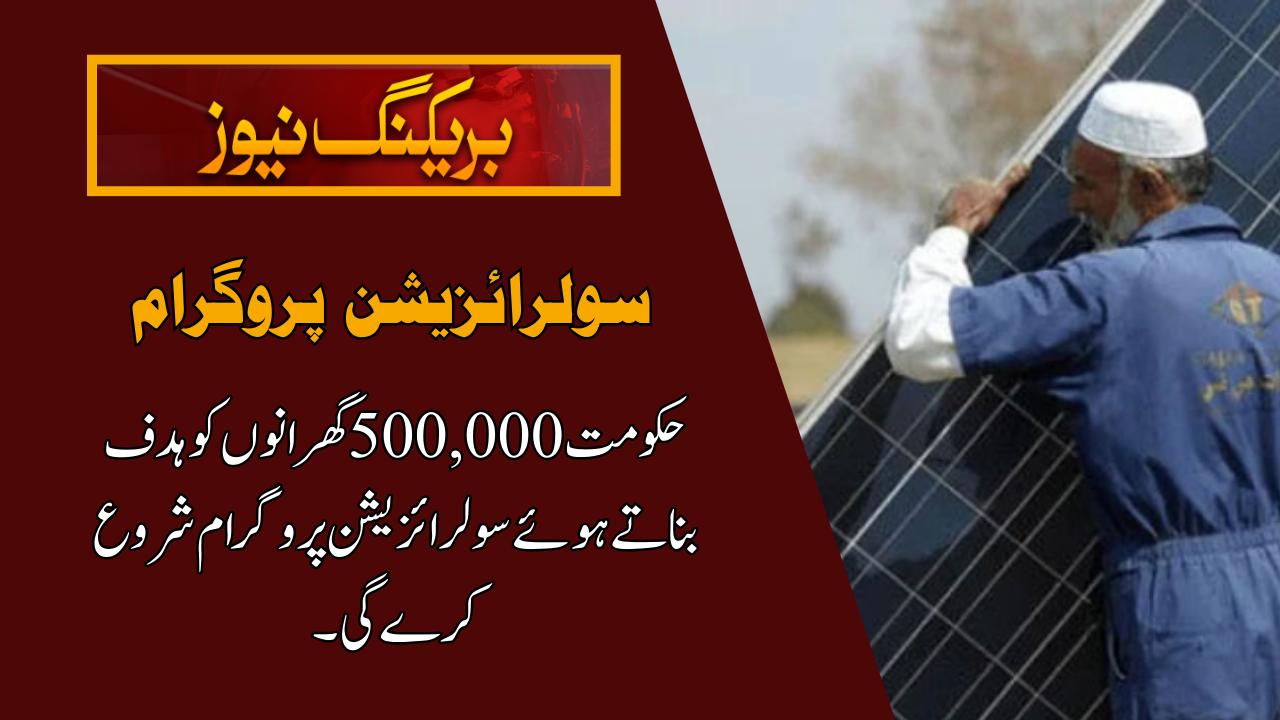Solarization Program
The Government of Sindh has broadcast an pushy solarization program to provide renewable energy solutions to 500,000 households, focusing on off-grid rural areas. This creativity is part of Pakistan’s broader change to workable energy, aiming to reduce reliance on old power sources and promote environmental sustainability. The program seeks to make electricity accessible and affordable for underserved communities, directly addressing the nation’s energy crisis.
More Read:Interest-Free MCB Personal Loan
Quick Information Table
| Program Name | Sindh Solarization Program |
| Start Date | December 2024 |
| End Date | Ongoing, phased rollout |
| Assistance Provided | Free solar panels for 500,000 households |
| Eligibility | Low-income households in rural Sindh areas |
| Required Documents | CNIC, proof of income, residency certificate |
| Application Method | Through Benazir Income Support Program (BISP) |
Objective of the Program
The primary goal of the solarization initiative is to provide reliable and cheap energy to households that remain unconnected to the national power grid. The government also aims to reduce electricity costs and support Pakistan’s climate change goals by mixing renewable energy sources.
More Read:Sindh Government Announces E-Taxi Programme for Youth
Eligibility Criteria
To ensure the program benefits the most worthy households, the government has defined specific eligibility requirements:
- Income Level: Applicants must fall within the low-income bracket as identified by BISP.
- Residency: The household must be located in an off-grid or rural area of Sindh.
- Energy Access: Import will be given to families with little or no access to energy.
Required Documents
Applicants need to submit the following documents during the application process:
- Valid CNIC (Computerized National Identity Card): For ID and verification purposes.
- Proof of Income: Such as a BISP registration slip or other documents to confirm financial status.
- Residency Certificate: To confirm the applicant resides in an eligible area.
More Read:Sindh Government Announces E-Taxi Programme for Youth
These documents are mandatory to ensure slide and fairness in the allocation process.
Benefits of the Program
Economic Relief
Providing free solar panels will knowingly reduce energy costs for families. Solar power eliminates the need for classy and environmentally harmful fuels like kerosene and diesel.
Environmental Impact
The program aligns with global efforts to combat climate change by reducing need on fossil fuels. Transitioning to renewable energy sources like solar panels will lower carbon emissions and improve air quality.
More Read:BISP Disbursing 10,500 Payment to 180,000 Beneficiaries in Sargodha
Improved Quality of Life
Reliable electricity enables better lighting, enhanced communication through mobile devices, and access to electronic appliances, improving the overall quality of life in rural communities.
Implementation and Rollout Plan
The Sindh government, in collaboration with financial bodies and local authorities, will implement the program in phases. The first phase targets 500,000 households across Sindh, with an initial focus on the most underserved districts. Solar panels will be distributed through authorized local councils.
Additionally, the Sindh Power Regulatory Authority (SIPRA) will oversee the addition of renewable energy into the local grid, ensuring long-term sustainability.
Application Process
- Registration: Eligible households must register with BISP or designated local offices.
- Verification: Authorities will verify submitted documents to confirm eligibility.
- Distribution: Once approved, solar panels will be distributed directly to households.
Applicants can stay updated on registering deadlines and guidelines through official government channels or local community centers.
More Read:Punjab Government Announced 35000 Free laptops
Future Goals and Expansion
The Sindh government imagines spreading this program to other sticks if successful. Additional efforts are being made to:
- Lower the cost of solar panel production by encouraging local trade.
- Explore partnerships with private companies to improve the obtainability of renewable energy technologies.
- Increase community awareness about the benefits of adopting solar power.
More Read:Prime Minister Low Cost Housing Scheme
Conclusion
The Sindh Solarization Program is a important step toward deciding Pakistan’s energy crisis and addressing rural electricity needs. By providing 500,000 households with free solar panels, the government is promoting tolerable energy use while easing economic burdens on low-income families. The program is expected to serve as a model for renewable energy visions across the country, paving the way for a greener and more energy-secure Pakistan.

